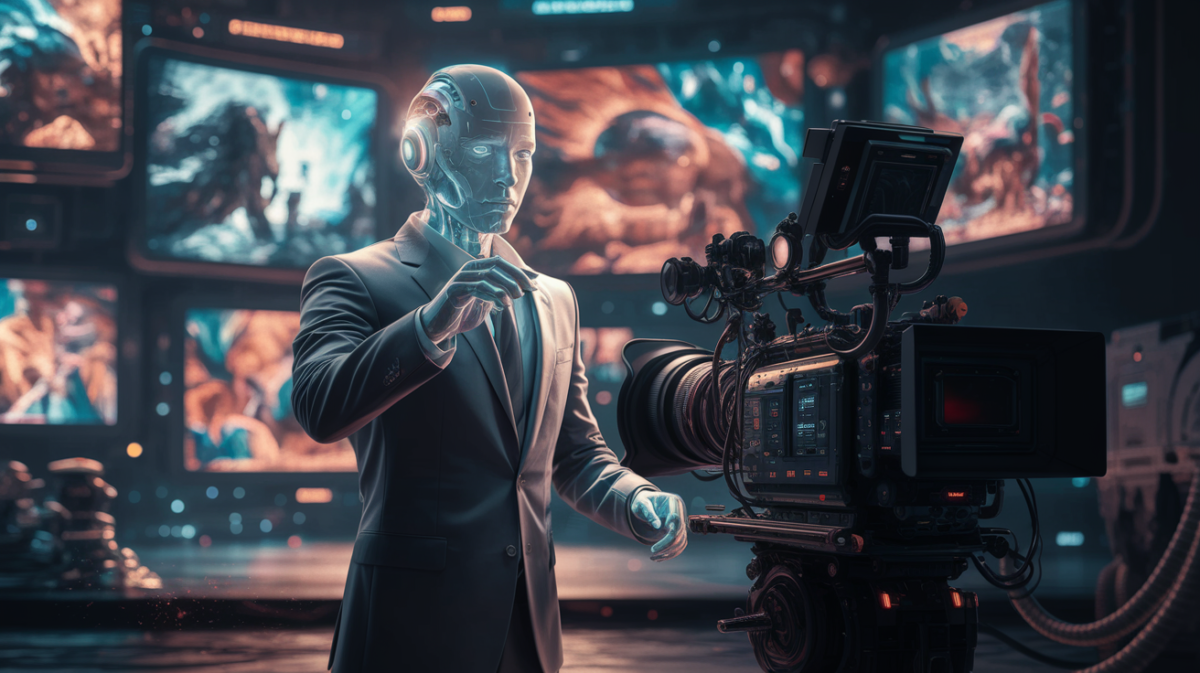The film industry is no stranger to technological advancements, but the rise of artificial intelligence (AI) is rewriting the rules of storytelling. From scriptwriting to post-production, AI is making waves—both thrilling and unsettling filmmakers and audiences alike. This groundbreaking shift raises questions about creativity, ethics, and the future of cinema.
The Rise of AI-Generated Films
AI-generated films are no longer a futuristic concept. In 2016, the short film “Sunspring” made headlines as the first movie scripted entirely by an AI named Benjamin. The result was surreal, unpredictable, and oddly captivating, proving that machines could craft narratives—albeit with a unique twist.
Today, AI tools like OpenAI’s DALL·E 2 and Sora are pushing boundaries further:
- DALL·E 2: Generates high-quality images from text prompts, enabling filmmakers to visualize scenes before production.
- Sora: Produces photorealistic, one-minute-long videos based on simple user inputs, opening doors for rapid prototyping and creative experimentation.
How AI Is Transforming Filmmaking
AI’s impact extends beyond scriptwriting and visuals. Here’s how it’s reshaping the industry:
1. Pre-Production
AI can analyze vast amounts of data to predict audience preferences, helping studios greenlight projects with higher success rates. It also assists in location scouting and casting by matching actors to roles using facial recognition and performance metrics.
2. Production
AI-powered cameras and drones optimize shots in real-time, reducing the need for reshoots. Visual effects (VFX) are also becoming more accessible, with AI automating tasks like rotoscoping and compositing.
3. Post-Production
Editing is faster and more precise with AI tools that can sift through hours of footage to select the best takes. Sound design and color grading are also being enhanced by machine learning algorithms.
The Ethical Dilemma
While AI offers exciting possibilities, it also sparks concerns:
- Job Displacement: Roles like scriptwriters, editors, and VFX artists could face competition from AI.
- Creative Authenticity: Can AI truly replicate human emotion and nuance, or will films lose their soul?
- Ethical Guidelines: The industry needs clear rules to prevent misuse, such as deepfake technology.
Public Reactions: Excitement vs. Fear
The public’s response to AI-generated films is mixed. Platforms like Reddit and YouTube reveal a spectrum of opinions:
| Platform | Reaction |
|---|---|
| Discussions highlight AI’s potential but also fears about job loss and creative integrity. | |
| YouTube | Videos like “The Great Catsby” showcase AI’s capabilities, but comments often express unease about the uncanny valley effect. |
The Future of AI in Cinema
AI is here to stay, but its role in filmmaking will likely be collaborative rather than dominant. Filmmakers like Jon Dudkowski argue that AI should augment human creativity, not replace it. As the technology evolves, the industry must balance innovation with ethical responsibility.
One thing is certain: the intersection of AI and filmmaking is just beginning. Whether it’s a boon or a threat depends on how we navigate this uncharted territory.







